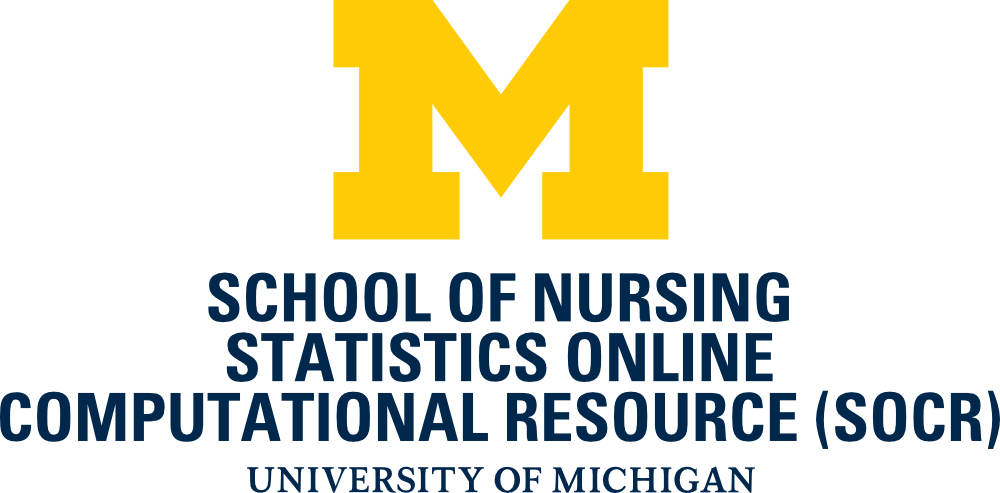SOCR Research
SOCR investigators, students, trainees, fellows, and faculty conduct research in computational and data science, artificial intelligence and statistical learning, health analytics, neuroscience and brain mapping, mathematical modeling, statistical inference, bioinformatics, and STEM education.
Computational and Data Science, Predictive Analytics
There are a number of challenges, opportunities, and strategies for designing, collecting, managing, processing, interrogating, analyzing and interpreting complex datasets. SOCR develops, validates and shares methods, software tools, and protocols that can be applied to a broad spectrum of Big Data problems. This includes building mathematical foundations, computational statistics algorithms, and modern scientific inference techniques to model, visualize and interpret heterogeneous biomedical data. DSPA »
Neuroscience and Brain Mapping
SOCR is involved in challenging neuroscience projects examining brain development, maturation and aging in health and disease. Specific projects include studying normal and pathological pediatric development (e.g., Autism, ADHD, Schizophrenia), memory decline and dementia (e.g., Alzheimer's disease), and various other brain related disorders (e.g., ALS, Parkinson's disease) SOCR Pubs »
Foundational and Machine Learning and Generative Artificial Intelligence Models (GAIMs)
SOCR develops meta-algorithms for data harmonization, aggregation, model-based and model-free inference. Examples include GAIMs, CBDA, DataSifter, and SOCR AI Bot RShiny apps (data analytics, synthetic text, image and code generation, R-training), see video 1, video 2, and this slidedeck.
STEM education
SOCR investigators develop interactive learning modules, dynamic instructional resources, and technology-enhanced educational resources (e.g., MIDAS Graduate Data Science Certificate Program, Graduate Health Analytics Curriculum). Prob & Stats EBook » SMHS EBook »
Computational Medicine and Bioinformatics
Integration of cognitive, genetics, phenotypic, imaging, and biospecimen data requires novel strategies to represent high-dimensional and incongruent data as computable data objects. This research project aims to develop effective informatics techniques that address this difficult challenge using a scalable, reproducible, and reliable computational workflow environment, e.g., Pipeline workflows »
Spacekime Analytics
The SOCR group at the University of Michigan is developing a novel theoretical foundation to extend the notion of time to the complex plane. This approach lifts the concept of time from a positive real number representing event ordering to a 2D complex-time (kime) comprising a pair of coordinates - time (t) and phase (φ). Spacekime analytics enables powerful data-driven strategies to interrogate large longitudinal data. This fundamentals research project explores time-complexity and inferential uncertainty in modeling, analyzing, and interpreting large, heterogeneous, multi-source, multi-scale, incomplete, incongruent, and longitudinal data.
Spacekime ».Multidisciplinary Design Projects (MDP)
SOCR MDP R&D projects and other specific ongoing student, fellow, and scholar science and discovery projects are openly shared and disseminated SOCR MDP Projects ».

